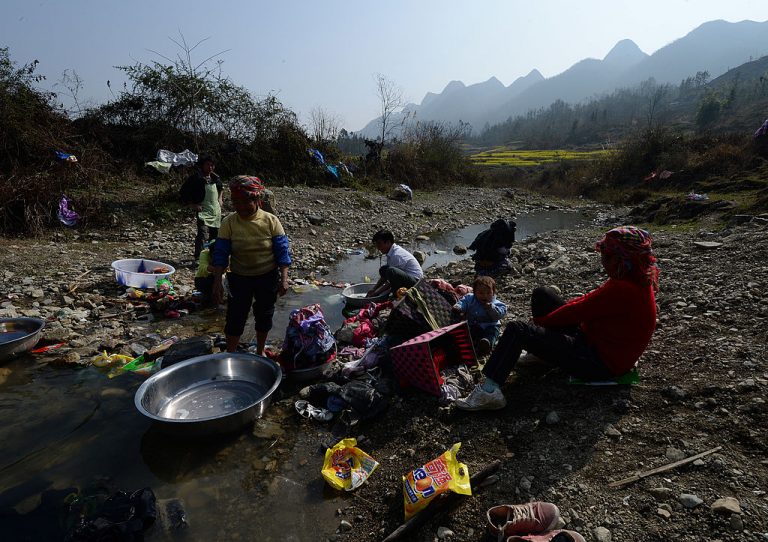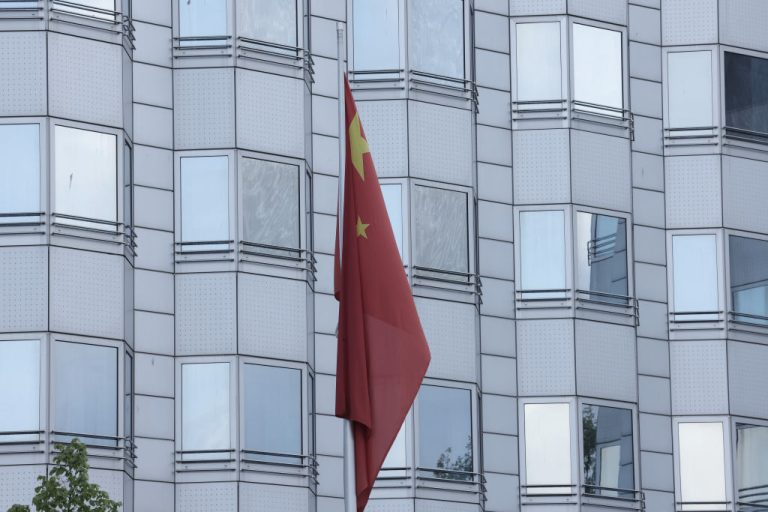The environment for foreign media in communist China is getting worse. Officials in Bijie, Guizhou, China, say a local official was honored and rewarded by his superiors for reporting negative news about foreign media entering the region to report on poverty eradication. A state-backed media outlet then attacked the foreign media reporter involved in the incident. However, official media has also reported that the Chinese Communist Party (CCP) has falsified its poverty reduction efforts.
China News Network and other official media reported that several local officials were praised for reporting important clues involving national security. That was according to an article published on Sept. 9 on the public WeChat “Bijie Release” of the Propaganda Department of the CCP Bijie Municipal Committee.
One of the officials this year reported negative news about the so-called “foreign anti-Chinese media” continuing to “illegally cover” the area of poverty eradication in Bijie and “hyped” it up outside the country. The official was later awarded “spiritual recognition and material rewards” by the CCP’s Ministry of State Security and the Guizhou Provincial Department of State Security.
The article does not name the foreign media involved. The original posting is no longer available.
In recent years, the CCP has frequently disclosed so-called “endangering national security” cases. With strained relations between Beijing and the West in recent years, the reporting environment for foreign media in communist China has become even tighter. Beijing has continually claimed that foreign reporting has threatened national security.
Success
You are now signed up for our newsletter
Success
Check your email to complete sign up
On Oct. 10, the CCP-backed Shanghai Observer revealed that NPR had sent a Chinese-American reporter, Emily Feng, to “visit” some of the communities in Bijie last April. The article claimed that the Chinese reporter took some of the residents’ speeches “out of context” to “smear the achievements of China’s national poverty eradication efforts.”
The Observer then attacked Feng Zhenyun. In addition to NPR, the Observer alleged that the New York Times, the Associated Press, The Washington Post, the BBC, CNN, and Agence France-Presse published articles to smear China’s achievements in poverty alleviation.
Then the Observer articles lauded the Communist Party’s efforts to combat poverty.
CCTV also exposes falsification of poverty eradication
On Feb. 25, Xi Jinping announced a “comprehensive victory” in the battle against poverty, calling it another “human miracle” under his leadership. On July 1, the centenary of the CCP, Xi also declared that communist China had built a prosperous society. However, these claims have been questioned by outsiders and the public; even CCTV, the regime’s mouthpiece, questioned the claims.
On April 24, the Chinese Central Television (CCTV) exposed the falsification of the “removal of poverty” in Luonan County, Shaanxi Province, which was declared to be out of poverty in Feb. 2020.
The report targeted the poverty alleviation in Lingkou Township, Luonan County, Shaanxi Province. The poverty alleviation officials gathered each village’s five poorest households to the resettlement site, which was not even connected to water. After the acceptance, no one cared about the life of the five poor households anymore.
Since most of the village labor force had gone out to work, the villagers had to pay workers to transport water into the site. The extra labor cost made the water too expensive.
After the scandal of falsification of poverty was exposed, Shaanxi authorities immediately “dispelled the rumors.”
The Epoch Times reported that the CCP’s standard for poverty eradication is that once individuals earn an annual income of 4,000 yuan (RMB), they are considered to be “out of poverty.” However, according to the data released by the World Bank in 2018, “each person living on less than USD$5.50 per day” is classified as under the poverty line; there are also extreme poverty lines of less than $3.20 and $1.90 per day. At the lowest end of the scale—$1.90 per day—it would cost $693.50 a year or 4,500 RMB. That’s 12% above the poverty line set by the Communist Party.
In late May 2020, Chinese Premier Li Keqiang told a press conference at the National People’s Congress that 600 million people in communist China earn less than 1,000 yuan a month. This was seen as proof of the authorities’ failure to alleviate poverty.







